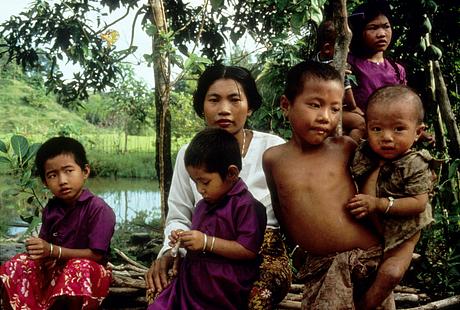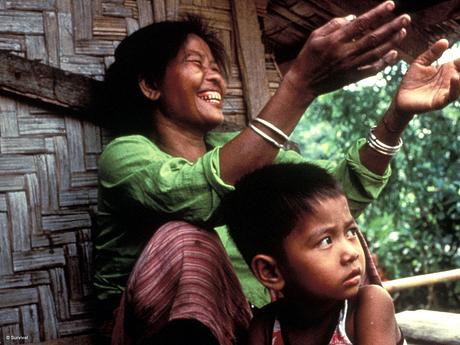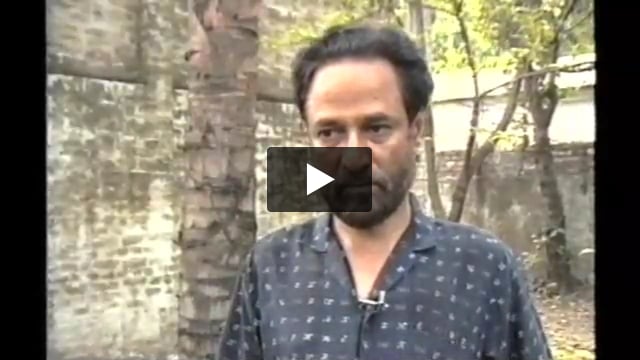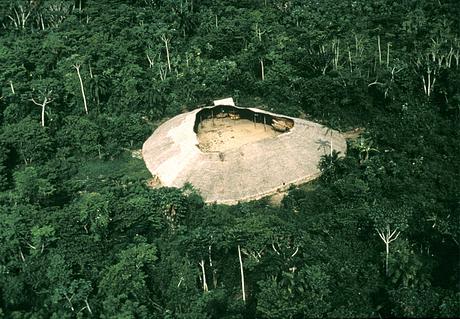Tribal girl raped and murdered in Bangladesh as repression continues
May 15, 2012
 © Mark McEvoy/Survival
© Mark McEvoy/SurvivalThis page was last updated in 2012 and may contain language which is now outdated.
An eleven-year old girl from the Chakma tribe in Bangladesh has been raped and murdered by a settler.
Sujata Chakma and her younger brother were grazing cows near their village when she was attacked on 9 May.
A suspect has been arrested, but local Indigenous people have little faith he will be brought to justice.
Between January and May this year, at least six Jumma girls and women have been raped. Rina Dewan of the Hill Women’s Federation says, ‘The setters continue to commit rape with impunity; not a single rapist has ever been brought to justice, and this is the single greatest factor contributing to the recurrence of this heinous crime.’
The government of Bangladesh has moved hundreds of thousands of settlers into the Chittagong Hill Tracts, home to eleven tribes, known collectively as Jummas.
The settlers have displaced many of the Indigenous Jummas, who have also been subjected to violent repression by the army. Jumma women and young girls are especially vulnerable to violent sexual attacks.
Whilst this violence continues unabated and with seemingly little attempt by the authorities to prosecute the perpetrators, evidence has emerged of further attempts to undermine the rights of the Indigenous Jumma people.
A confidential circular, from the political wing of Bangladesh’s Ministry of Home Affairs, has recently emerged. The document was distributed to government officials last year in the run up to the UN International Day of the World’s Indigenous Peoples on August 9th.
It warned government officials not to contradict the official government policy that there are no Indigenous people in Bangladesh – only ‘tribal people’ and ‘small ethnic groups’.
It went on to recommend that no government support should be given during Indigenous Peoples’ Day and that steps should be taken to publicise that ‘there are no Indigenous people in Bangladesh’.
This circular comes in the wake of amendments to the constitution in June 2011, which controversially failed to recognize the estimated 50-60 Indigenous peoples living in Bangladesh as ‘Indigenous peoples’, in line with the United Nations understanding of the term.
Instead, it describes them as, ‘tribes, ethnic groups, ethnic sects and communities’. The government of Bangladesh has since announced that it will remove all references to ‘Indigenous’ and ‘Adivasi’ from government documents, laws and even school textbooks.
The government’s attack on the term ‘Indigenous’ and on the celebration of Indigenous Peoples’ Day is even more surprising given that in previous years the Prime Minister herself sent messages of support to the country’s Indigenous peoples on Indigenous Peoples’ Day. Her party’s election manifesto also contained the term Indigenous (Adivasi) several times.
Survival’s Director, Stephen Corry said today, ‘Instead of worrying about whether ministers might accidently use the term ‘Indigenous’, the government of Bangladesh should be ensuring that Jumma women and young girls are safe from rape and murder. The record of prosecuting those responsible for these atrocities is scandalous – it’s high time that the government put its priorities in order and respected the rights of the Jummas’.
Note to Editors:
The original document is available to read here




